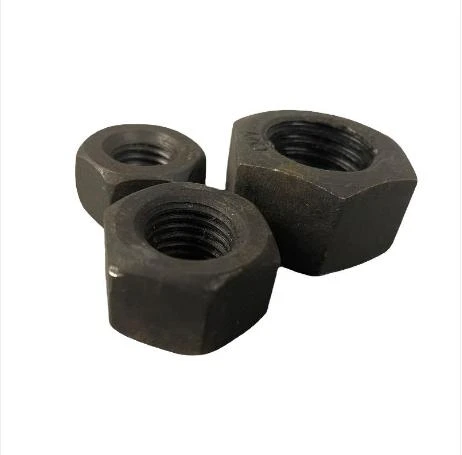

Types of Lock Nuts for Secure Fastening Solutions
Dec . 25, 2024 16:17 Back to list
Types of Lock Nuts for Secure Fastening Solutions
Understanding Lock Nut Types Essential for Secure Fastenings
Lock nuts play a vital role in mechanical assemblies by preventing fasteners from loosening due to vibration and other external forces. They come in various types, each designed for specific applications and environments. Understanding the different types of lock nuts can help engineers and technicians choose the right one for their projects, ensuring safety and reliability. Let's explore the most common types of lock nuts and their characteristics.
1. Hex Lock Nuts
Hex lock nuts are one of the most widely used types. They resemble regular hex nuts but feature an added mechanism for preventing loosening. This is usually achieved through increased friction or a deformation design that locks into place when tightened. Hex lock nuts excel in applications where vibration is a concern, such as automotive and machinery components.
2. Jam Nuts
Jam nuts are essentially thin hex nuts used in conjunction with a regular hex nut. When the regular nut is tightened against the jam nut, it creates an effective locking mechanism. Jam nuts are particularly useful in situations where space is limited, and they are commonly found in automotive and aeronautical applications. However, they may not provide the same level of security as other lock nut types under extreme conditions.
3. Nyloc Nuts
Nyloc nuts incorporate a nylon insert at the end of the nut, creating a friction fit that prevents loosening. The nylon collar grips the threads of the bolt, allowing the nut to withstand vibrations better than standard nuts. Nyloc nuts are available in various grades and sizes, making them versatile for many applications, especially in automotive and aerospace industries.
4. Serrated Flange Nuts
Serrated flange nuts feature a serrated surface on their flange that improves grip and prevents rotation. The serrations dig into the surface to which they are fastened, providing an additional locking mechanism. These nuts are excellent for applications involving softer materials, as they help distribute the load over a larger area. They are often used in heavy machinery and construction settings.
lock nut types

5. Castle Nuts (or Slotted Nuts)
Castle nuts are designed with slots that allow for the insertion of a cotter pin, which locks the nut in place. This feature is crucial in high-stress applications, as it provides a visual indication that the nut is secure. Castle nuts are commonly found in automotive drivetrain assemblies and suspension components, where safety is paramount.
6. Pal nuts
Pal nuts, or locking tetnis nuts, feature a small, raised section that fits into a chamfered part of the bolt or stud. This design creates a mechanical lock that resists loosening under vibration. They are widely used in applications where a secure, low-profile fastening is required, such as electronic components and precision machinery.
7. Lock Washers
While not a nut in the traditional sense, lock washers are often used alongside nuts to enhance their locking efficiency. These washers can be split, serrated, or toothed, providing additional friction and locking capability. They are particularly useful in applications involving higher torque settings and significant vibration.
Conclusion
Choosing the right lock nut is essential for the safety and performance of any mechanical assembly. Understanding the various types and their specific advantages allows engineers to make informed decisions to suit their operational needs. From hex lock nuts and jam nuts to Nyloc and serrated flange nuts, the options available help ensure that fasteners remain securely in place, even under challenging conditions.
As technology progresses and the demands of various industries evolve, continual innovation in lock nut design will surely follow, enhancing reliability in mechanical fastening. Remember that the correct selection of lock nuts can ultimately safeguard integrity and enhance the longevity of mechanical systems in countless applications.
Latest news
-
High-Strength Hot-Dip Galvanized Bolts-Hebei Longze|Corrosion Resistance&High Strength
NewsJul.30,2025
-
Hot Dip Galvanized Bolts-Hebei Longze|Corrosion Resistance&High Strength
NewsJul.30,2025
-
Hot Dip Galvanized Bolts - Hebei Longze | Corrosion Resistance, High Strength
NewsJul.30,2025
-
High-Strength Hot Dip Galvanized Bolts-Hebei Longze|Corrosion Resistance, Grade 8.8
NewsJul.30,2025
-
Hot Dip Galvanized Bolts-Hebei Longze|Corrosion Resistance,High Strength
NewsJul.29,2025
-
High-Strength Hot Dip Galvanized Bolts - Hebei Longze Metal Products Manufacturing Co., Ltd.|corrosion resistance&high strength
NewsJul.29,2025

